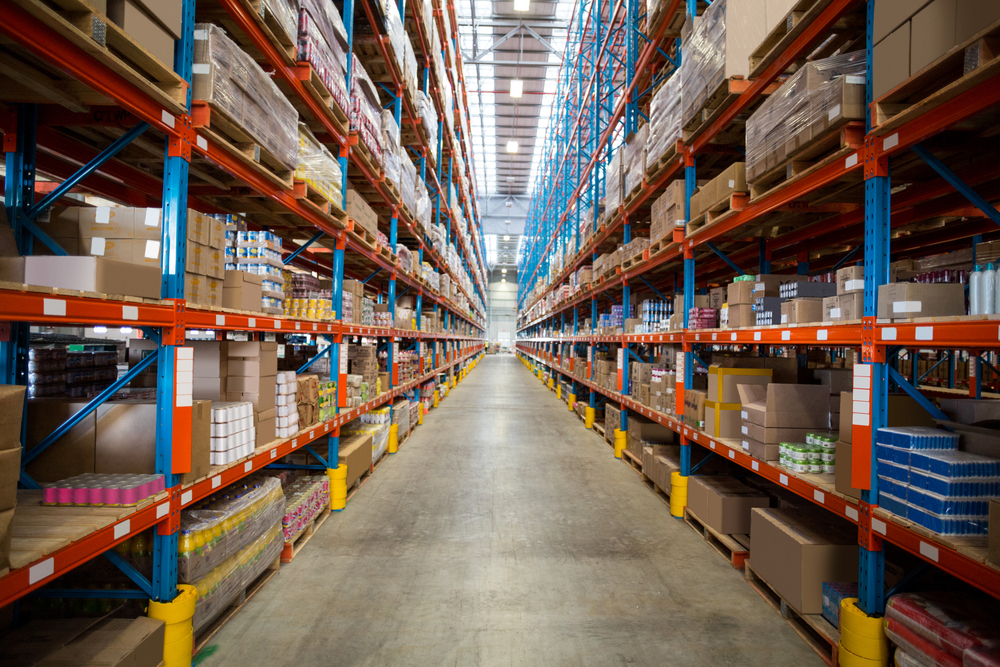Supply chains depend on warehousing for their management. How you store and manage your goods can have a profound impact on your business strategy. There are two kinds of warehouses: general warehouses and distribution warehouses.
Seasonal products get stored in general warehouses as backup inventory. Customer service is limited, handling is minimal, and transportation is minimal. On the other hand, distribution warehouses have a wide range of services in short-term storage.
They include handling, distribution services, transportation, and order fulfillment. Here are a few roles of warehousing in supply chain management.
Let us begin,
1. Efficient storage
Materials get stored efficiently in warehouses as part of supply chain management. When materials are stored properly, getting them to customers becomes much faster and more efficient. Materials get stored in a warehouse in such a way that maintains their high quality.
When looking for a facility for storage (warehouse), there are a few factors you need to consider to optimize the storage technique. Most of all, you must ensure that the warehouse you select suits your product needs. For instance, if you are supplying perishables, you might need to find temperature-controlled warehouses.
If you need to store imported goods, you may want to consider a custom bonded warehouse to store your materials until they are inspected and authorized for supply to customers. If you are in the food storage sector, you should select licensed food-grade warehouses that meet FDA regulations.
Companies that use warehouse management systems have advanced optimization of supply chain management. They track stored goods to streamline inbound and outbound shipments. That way, they can keep the supply chain moving.
2. Strategic location
Where your warehouse lies can make or break your supply chain. You can select a warehouse along your supply route or near the port, where you will be shipping your items to or receiving them. You should choose a location that will help you move your items from one point to another promptly.
The location of your warehouse can help you grow your business by attracting more customers and investors. An efficient supply chain management process can provide you with these benefits and many more. A strategic location can help improve inventory turns by optimizing the supply chain to meet the demand in the market.
3. Security
Your supply chain management is more secure with an efficient warehouse to prevent material spoilage and delays. Having a warehouse ensures your inventory is safe and in the best condition to enhance your supply chain. Suppliers can rely on your warehouses if your inventory is high quality and available when needed.
Keeping the warehouse safe is also vital. It helps to avoid losses through theft or vandalism. You can also boost your warehouse security systems with security cameras, alarms, and yard patrols to secure your products.
4. Inventory accountability
The warehouse facilitates good inventory management and a high degree of accountability. Inventory control helps you access data in real-time for the supply chain to run smoothly.
In a supply chain management environment, inventory control helps to match the supply with the demand. It helps boost your client experience since everything from the warehouse is up to standards.
Supply chain warehousing centralize your goods, giving you reliable data about when to supply and restock. If an item is out of stock, you can also offer alternative options to your customers (making sure that you always deliver).
5. Fulfillment of orders and distribution
Warehouses are an integral part of the distribution of products to suppliers and the fulfillment of orders. You can increase the efficiency of your supply chain by ensuring timely supplies. Inventory distribution, sorting, cross-docking, and other processes are made possible.
You can also opt for third-party warehousing. It can help you expand on the rate you distribute and fulfill orders to your clients in the supply chain. SAP Business One can manage your warehouses and manage your supply chain.
6. Economic benefits
A warehouse optimizes the supply chain creating a wide range of economic benefits for the company. Warehouses store your items for later use when the demand is high. It ensures price stability and the mitigation of revenue losses. Seasonal demand for products enables warehouses to play a vital role in the supply chain.
It helps to cut costs on outbound deliveries, transportation costs, and shipping costs. Supply chain warehousing also strikes a balance between demand and supply in the supply chain, increasing profits in a business.
7. Value-adding operations
Warehouses help to improve the utility value of goods in supply chain management. Warehousing makes sure that your products are at the right place at the right time. You can implement warehouse best practices to ensure that all operations of the company are managed properly. It adds considerable value to the overall performance of the company.
Operations such as cross-docking, order consolidation, product mixing, order assembly, and many others all happen in one place (the warehouse), adding value to the entire supply management system. It also helps to improve quality control in the supply chain. Warehousing ensures no process gets rushed unnecessarily, leading to errors and inaccuracies.
8. Enhance risk management
Warehousing enhances risk management by protecting your company against price fluctuations in the market. The warehouse can store goods when their demand from suppliers goes down in the supply chain. Also, most of the products in the warehouse are insured.
Hence, you can receive compensation from your insurer in case of theft, fire, or damage. In turn, this helps keep you in business with your clients and the processes in the supply chain running efficiently.
Bottom line:
In the supply chain management process, warehousing plays a crucial role. It streamlines your company’s supply chain. You can improve the efficiency of your warehouse operations by using software like SAP Business One.
Wisys is an excellent partner to help integrate SAP Business One in your company to streamline processes in the supply chain. Get in touch with us today to ensure your warehouse plays a central role in supply chain management.



